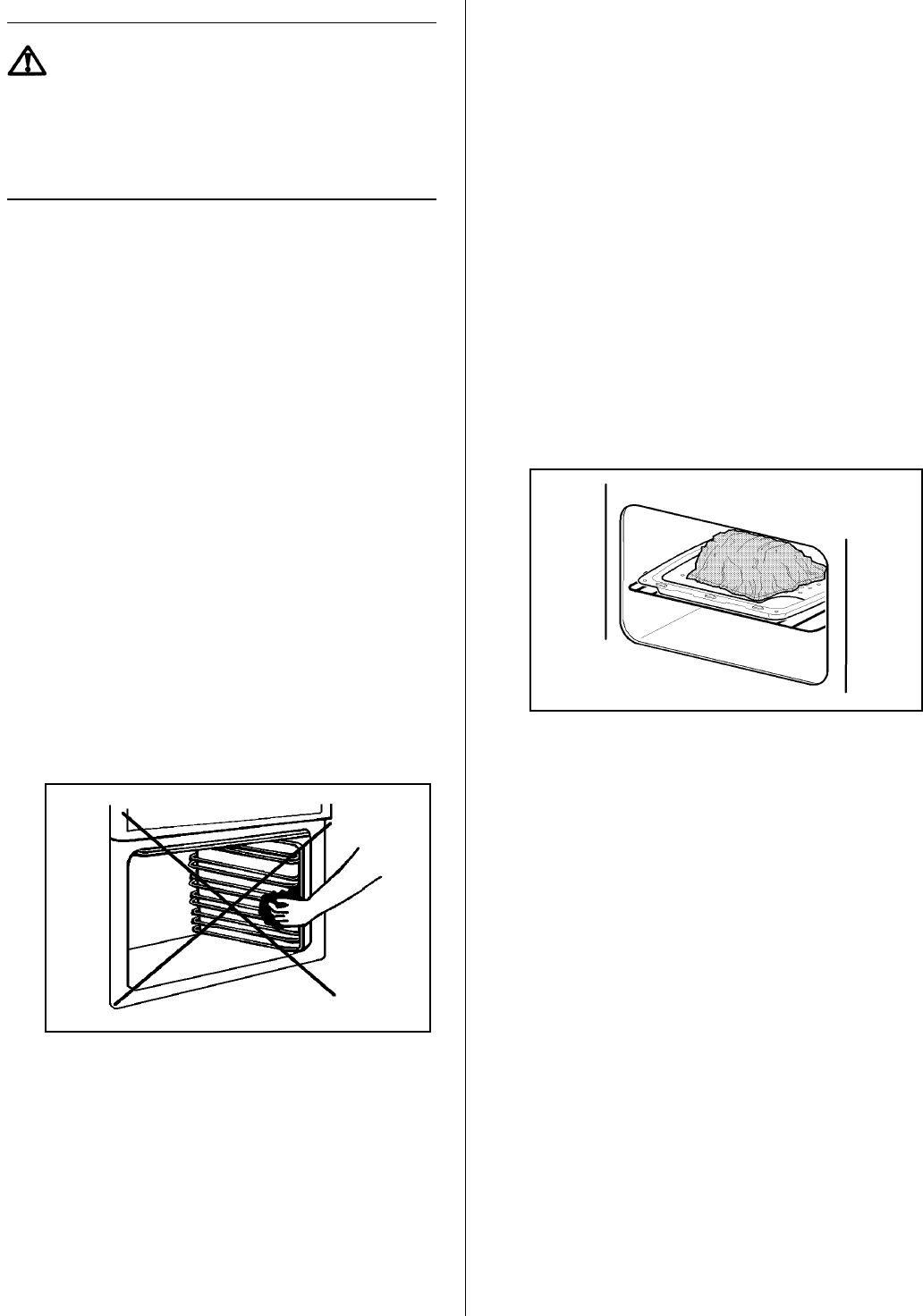
29
If the door glass panel becomes chipped or
has deep scratches the glass will be
weakened and must be replaced to prevent
the possibility of the panel shattering.
Please contact your local Service Force
Centre who will be pleased to advise
further.
TO CLEAN THE INNER GLASS DOOR
PANELS
Clean the inner glass door panels using a soft cloth
and hot water to which a little washing up liquid has
been added. If the inner panel is heavily soiled, Hob
Brite may be used. Do not use abrasive cleaning
materials on the door glass. Ensure that all parts are
well rinsed and thoroughly dried before attempting to
replace the glass.
CARE OF STAYCLEAN SURFACES
Stayclean surfaces destroy splashes of food and fats
when the oven temperature is raised to around
220°C.
It is a good idea to run the oven for an hour or two
per week to ensure continued good performance
from the Stayclean finish.
HINTS AND TIPS
· Manual cleaning of the Stayclean surface IS NOT
recommended. Damage will occur if abrasives or
aerosol sprays of any kind are used.
· Slight discolouration and polishing of the
Stayclean surfaces may occur in time. This
DOES NOT affect the Stayclean properties in
any way.
· A good time to allow the oven to run on is after
the weekly roast. After removing the roast, turn
the oven up to 220°C and allow to run for an hour
or so. It is important NOT to allow a build-up of
soilage as this can prevent the Stayclean
surfaces from working.
· Follow the recommendations below to keep oven
soilage to minimum.
· Cook at the recommended temperatures. Higher
temperatures during roasting will increase
soilage. Try cooking at lower temperatures for
an increased length of time, you will save energy
and often the joint is more tender.
· Use minimal, if any, extra oil or fat when roasting
meat, potatoes only require brushing with fat
before cooking. Extra fat in the oven during
roasting will increase splashing and soilage.
· It is not necessary to add water to a meat tin
when roasting. The water and the fat juices from
the joint create excessive splattering during
cooking even at normal temperatures as well as
causing condensation.
· Covering joints during cooking will also prevent
splashing onto the interior surfaces. Removing
the covering for the last 20-30 minutes will allow
extra browning if required. Some large joints and
turkeys especially benefit by this method of
cooking, allowing the joint to cook through before
the outside is over-browned.
REPLACING THE OVEN LIGHT BULB
The type of bulb required is a 300°C 25 watt small
Edison Screw. Part number 572 491 5431-00/1
(Available through your local Service Force Centre).
CAUTION: DISCONNECT THE APPLIANCE
FROM THE ELECTRICITY SUPPLY BEFORE
REPLACING THE BULB.
Open the door and remove the shelves to enable
easy access to the oven light assembly. Insert a flat
blade screwdriver between the oven side and glass
which covers the bulb.
Support the glass with your hand and prise out
sufficiently to release the glass cover. Unscrew the
bulb in an anticlockwise direction until it is possible to
remove the bulb with ease.
Fit the new bulb by turning in a clockwise direction
until it is secure. Ensuring the indent to the flange is
pointing to the rear of the oven, replace the glass by
pushing it firmly into the hole to cover the bulb
assembly.
Replace the shelves. Restore the electricity supply
and adjust the time of day and clock as necessary.


















